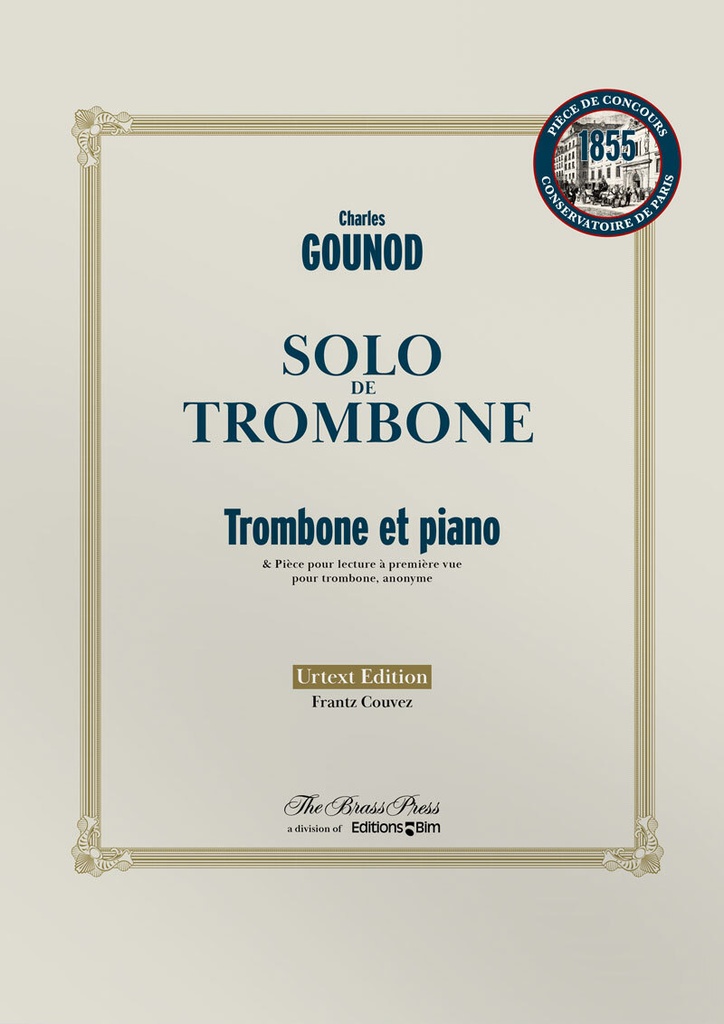Solo de Trombone
Beschrijving
On Saturday, July 28, 1855, the trombone competition took place at the Conservatoire de Paris. That year, one morning was enough to listen to all the candidates for the reason that is explained by Paul Smith, in the Revue et Gazette musicale: "The whole family of the wind instruments […] had a meeting with a harp in one and the same morning. The war shortened the competition: many pupils had left the classes to follow their regiments in Crimea. Nevertheless, the competition was honorable. ‘The teacher, Antoine Dieppo, presented two students who were rewarded that day: Jean-Baptiste-Frédéric Masset (born 1828) won a first prize while François-Achille-Alfred Dauger (born in 1825) won a second prize. In addition to the performance of the imposed piece - the Solo de Trombone by Charles Gounod (1818-1893) presently published—students were also subjected to a sight reading test. In 1855, it is an allegro of an anonymous composer, composed for trombone with accompaniment of a cello, piece already imposed in 1852.
Gounod's Solo de Trombone was never published by the author, and the score soon disappeared, being declared lost by the ensemble of biographers of the composer until recently. Two manuscripts have enabled the reconstitution of this edition. The first - a trombone part, was discovered in a flea market at the end of the 1990s, the second belongs to Frantz Couvez, trombonist, who has a photocopy given by his teacher, Gilbert Moisand. Different stylistic elements quickly confirmed that this is a genuine Gounod piece: the general style, close to the six melodies for horn and piano of 1839, certain harmonic detours-even if the style is not yet quite personal - and piano accompaniment, which is not without some problems. The non-pianistic aspect of other works of the composer, already striking in the Melodies for horn, is indeed found here: Gounod was not a pianist and hated to produce this kind of reduction, detail confirmed by Gérard Condé. This edition therefore reorganizes certain passages (complete or redistributed harmony, improved pianistic figurations, superimposed hands…).
This Solo is written in two movements. The first, in G minor, begins with an andante introduction, astonishingly developed in relationship to the entire piece. This tutti leads to an adagio cantabile in 6/8, a true aria with Italian sensuality. The instrumental line, supported by a regular swinging triplet, follows the contours of a vocal phrase characteristic of Bellini or Donizetti, then in vogue in Paris. The second part of the piece in molto pomposo and ben marcato in B flat major, acts as a cabalette, concluding with figures in triplets of a not insignificant difficulty.
Laurent Madeuf Paris, September 2018
